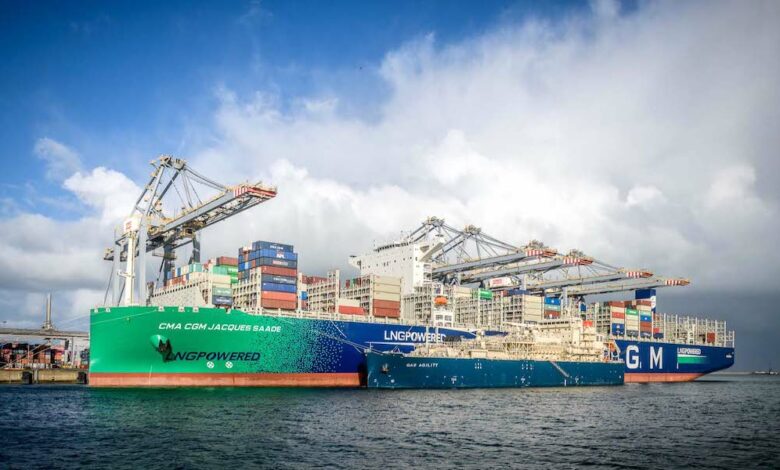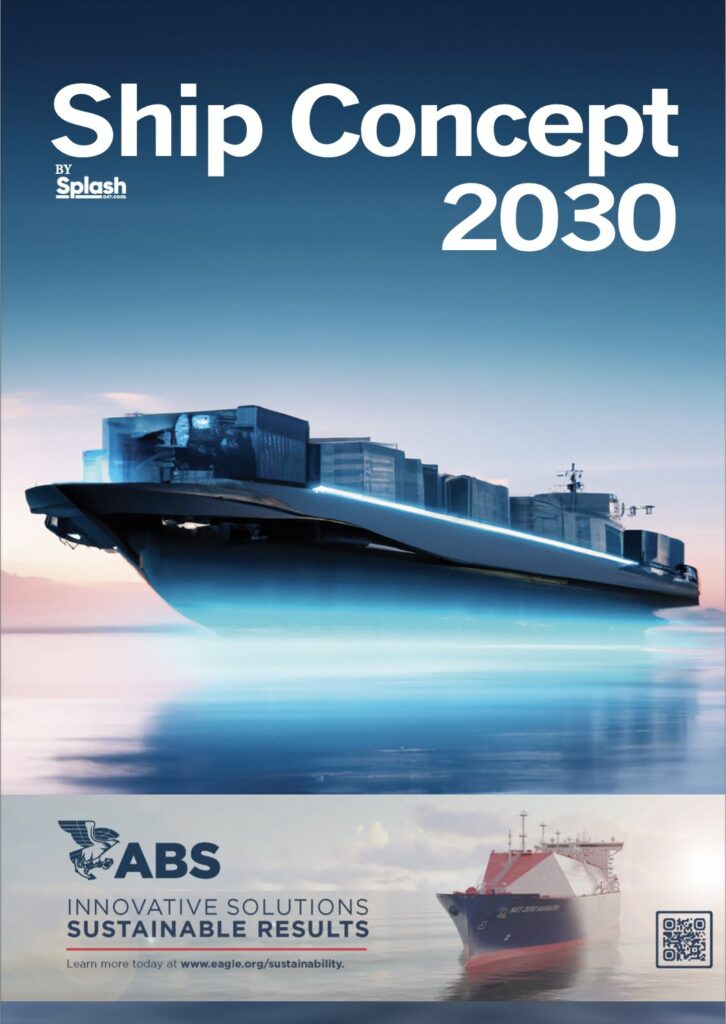Ship Concept 2030: The case for LNG

Zane Berry from MCA Consulting gives his take on what the merchant fleet will look like at the start of the next decade.
The main driver for change in vessel design and operation will remain the need for fuel optimisation through to 2030 and beyond. There is little availability for cargo capacity improvement and so the only other avenue may be autonomous functions in navigation and other maritime activities.
The search for the silver bullet fuel solution remains enticing but elusive, with hydrogen, ammonia and even methanol not being realistic on a large scale, at least before 2030. LNG seems to be becoming more accepted as the transition fuel and we can see this in the numbers for LNG-powered vessels uptake with a global fleet of 251 LNG-fuelled vessels in operation, and 403 more on order, according to 2022 DNV statistics. Dual fuel HFO/LNG provides an accessible option for many shipowners.
The existing infrastructure for LNG is also attractive to owners, there has been consistent investment over the last decade on upstream and downstream projects; $15bn in LNG financing completed by May of 2023 alone and a number of mega projects such as the Texas 24bn cu m a year Golden Pass LNG facility in Sabine Pass due to start production next year. There is also Qatar’s $30bn LNG megaproject on track to complete construction by 2027.
The global LNG tanker fleet continues to expand, up to 639 vessels (54m dwt) and 48 LNG carriers will be added to the fleet this year, and an additional 71 in 2024. LNG as a ship’s fuel still misses out on being the darling of emissions reductions conversations but the pragmatists in the industry are more willing to take the 30% reductions now over the cleaner technologies that remain on the more distant horizon.
We are seeing more companies looking to complement their fuelling decision with optimisation from other areas such as vessel operations and smart use of technologies. Remote monitoring and intervention is commonplace already, not only saving on fuel but also improving the efficiency of marine activities, navigation, cargo handing and port operations.
Keppel showcased their demonstration of autonomous tug boats in Singapore ports in 2022 and a number of semi-autonomous ferries around the world are apparently in operation. The International Maritime Organization is moving forward with the MASS (Mobile Autonomous Surface Ship) regulatory framework that will pave the way for a more widespread uptake of the technology. We can expect major changes to operation and manning of vessel in the coming decades but not in time for 2030.
Much akin to the choice of fuel, the autonomous movement is also very much in a transitory phase and between now and 2030 we may not see any dramatic changes to the vessels themselves but more to the way they are managed, maintained and supported around the world. The management and upkeep of international ships supports a massive service industry that traditionally moves large numbers of mangers, technicians and inspectors around the world as well as ships spares and equipment.
Remote technologies are already providing options to deal with faults and failures, trouble-shooting etc. but also the day to day running of the vessels like Annual inspections, Assurance activities and even training. In 2021 ABS reported an 800% increase in remote surveys over traditional surveys.
By 2030 periodic maintenance is likely to be replaced by predictive monitoring technologies using very precise data capture on key components (vibration monitoring, temperature, etc) allowing for parts only to be replaced when they are about to fail instead of basing maintenance programme on running hours. Small steps when applied globally over ship lifecycles add up to big improvements.
This article is one of many in the recently published Ship Concept 2030 magazine, a publication designed to give readers a realistic idea of what newbuilds will look like in seven years’ time. Splash readers can read the full magazine for free by clicking here.

Ship Concept 2030 is sponsored by ABS, click here to read ABS’s 2023 Outlook.
